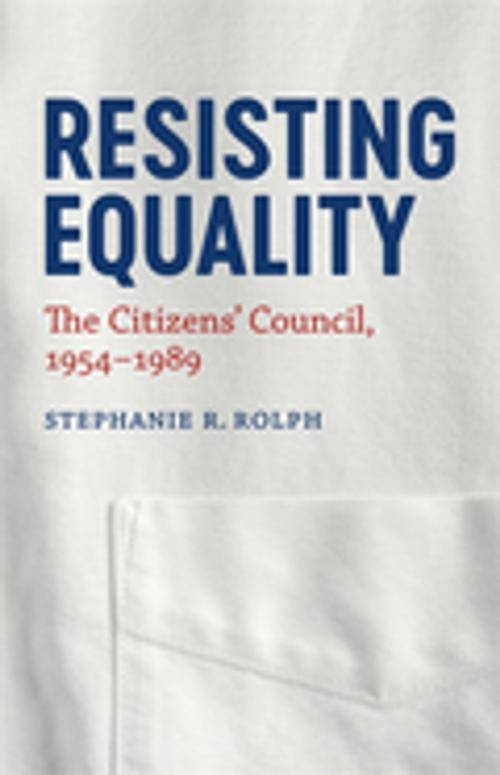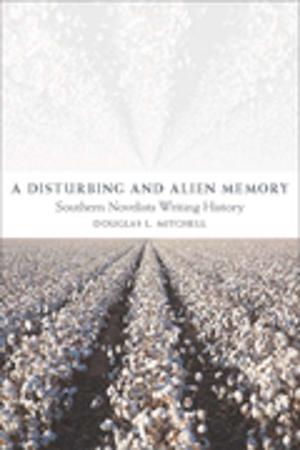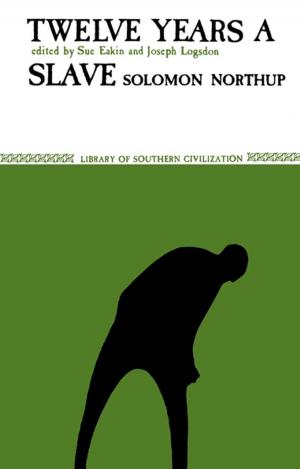Resisting Equality
The Citizens' Council, 1954-1989
Nonfiction, Social & Cultural Studies, Political Science, Politics, Civil Rights, History, Americas, United States, 20th Century| Author: | Stephanie R. Rolph | ISBN: | 9780807169179 |
| Publisher: | LSU Press | Publication: | June 4, 2018 |
| Imprint: | LSU Press | Language: | English |
| Author: | Stephanie R. Rolph |
| ISBN: | 9780807169179 |
| Publisher: | LSU Press |
| Publication: | June 4, 2018 |
| Imprint: | LSU Press |
| Language: | English |
In Resisting Equality Stephanie R. Rolph examines the history of the Citizens’ Council, an organization committed to coordinating opposition to desegregation and black voting rights. In the first comprehensive study of this racist group, Rolph follows the Citizens’ Council from its establishment in the Mississippi Delta, through its expansion into other areas of the country and its success in incorporating elements of its agenda into national politics, to its formal dissolution in 1989.
Founded in 1954, two months after the Brown v. Board of Education decision by the U.S. Supreme Court, the Council spread rapidly in its home state of Mississippi. Initially, the organization relied on local chapters to monitor signs of black activism and take action to suppress that activism through economic and sometimes violent means. As the decade came to a close, however, the Council’s influence expanded into Mississippi’s political institutions, silencing white moderates and facilitating a wave of terror that severely obstructed black Mississippians’ participation in the civil rights movement. As the Citizens’ Council reached the peak of its power in Mississippi, its ambitions extended beyond the South. Alliances with like-minded organizations across the country supplemented waning influence at home, and the Council movement found itself in league with the earliest sparks of conservative ascension, cultivating consistent messages of grievance against minority groups and urging the necessity of white unity. Much more than a local arm of white terror, the Council’s work intersected with anticommunism, conservative ideology, grassroots activism, and Radical Right organizations that facilitated its journey from the margins into mainstream politics.
Perhaps most crucially, Rolph examines the extent to which the organization survived the successes of the civil rights movement and found continued relevance even after the Council’s campaign to preserve state-sanctioned forms of white supremacy ended in defeat. Using the Council’s own materials, papers from its political allies, oral histories, and newspaper accounts, Resisting Equality illuminates the motives and mechanisms of this destructive group.
In Resisting Equality Stephanie R. Rolph examines the history of the Citizens’ Council, an organization committed to coordinating opposition to desegregation and black voting rights. In the first comprehensive study of this racist group, Rolph follows the Citizens’ Council from its establishment in the Mississippi Delta, through its expansion into other areas of the country and its success in incorporating elements of its agenda into national politics, to its formal dissolution in 1989.
Founded in 1954, two months after the Brown v. Board of Education decision by the U.S. Supreme Court, the Council spread rapidly in its home state of Mississippi. Initially, the organization relied on local chapters to monitor signs of black activism and take action to suppress that activism through economic and sometimes violent means. As the decade came to a close, however, the Council’s influence expanded into Mississippi’s political institutions, silencing white moderates and facilitating a wave of terror that severely obstructed black Mississippians’ participation in the civil rights movement. As the Citizens’ Council reached the peak of its power in Mississippi, its ambitions extended beyond the South. Alliances with like-minded organizations across the country supplemented waning influence at home, and the Council movement found itself in league with the earliest sparks of conservative ascension, cultivating consistent messages of grievance against minority groups and urging the necessity of white unity. Much more than a local arm of white terror, the Council’s work intersected with anticommunism, conservative ideology, grassroots activism, and Radical Right organizations that facilitated its journey from the margins into mainstream politics.
Perhaps most crucially, Rolph examines the extent to which the organization survived the successes of the civil rights movement and found continued relevance even after the Council’s campaign to preserve state-sanctioned forms of white supremacy ended in defeat. Using the Council’s own materials, papers from its political allies, oral histories, and newspaper accounts, Resisting Equality illuminates the motives and mechanisms of this destructive group.















